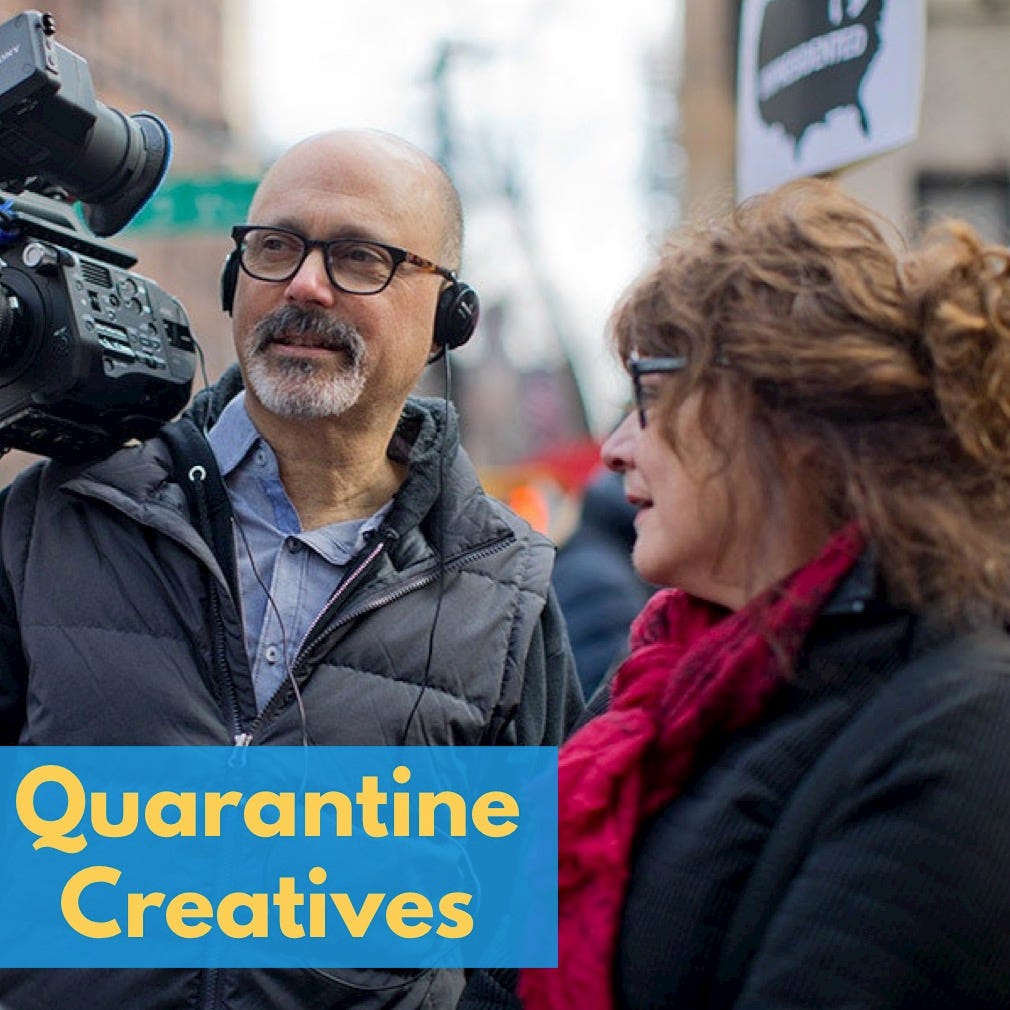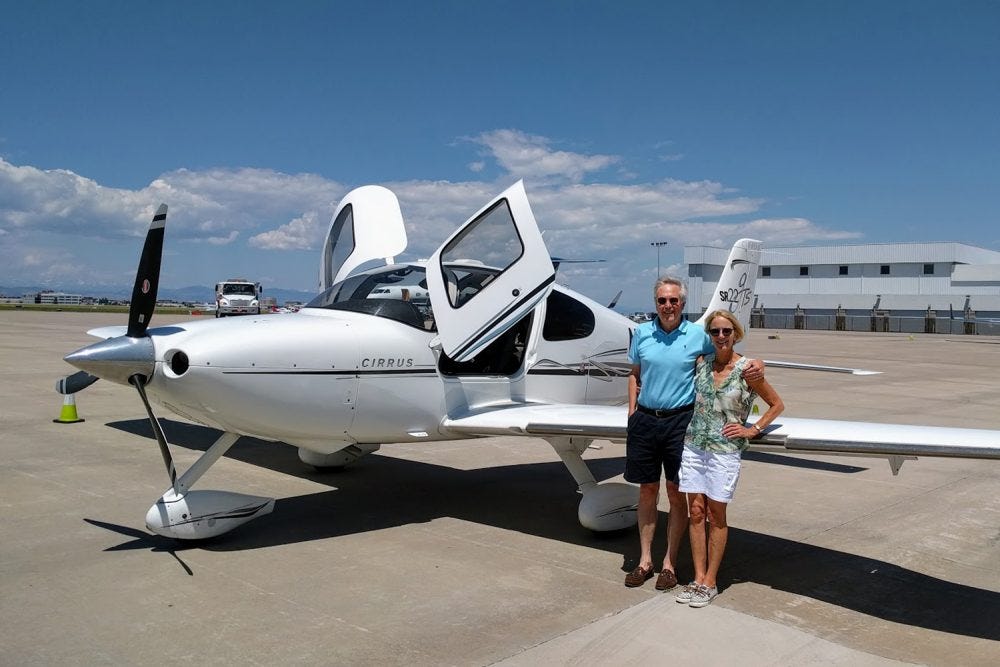Welcome to the Quarantine Creatives newsletter, a companion to my podcast of the same name. If you enjoy what you’re reading, you can sign up to have this newsletter delivered to your inbox every Sunday:
Small Town Guy
What is it that makes our small towns so special? After all, there is something so quintessentially American about a small town.
They were always my favorite places to shoot when I worked at This Old House. In part, it’s because they are very specific and meaningful to the people that live in them, but they also seem to follow the same blueprint and carry the same DNA, regardless of where you are in the country.
They have similar layouts, similar cultures, even similar looks. They may have the Rocky Mountains or the desert Southwest as a backdrop, but at the end of the day, there’s a commonality that I felt over and over in my travels. I say this not as a critique, but an observation, and I took great comfort in that uniform skeleton with unique details.
Perhaps that comfort comes from familiarity, as I grew up in a small town. Willoughby, Ohio has just over 20,000 residents and sits about 20 miles east of Cleveland. It has an idyllic downtown made of brick buildings and small businesses (that’s it in the photo above). I used to get my haircut there, buy coffee in the local coffeeshop, and check out books from the library.
In the center of town is a wedge-shaped park with a gazebo and a Civil War era cannon. These days, the cannon is surrounded by flower beds and a fountain. It’s a place for young kids to gather and have an ice cream cone.
Perhaps you’ve noticed that I seem drawn to content that explores what it means to be American, especially right now. I explored this theme earlier this year with Kahane Cooperman, the filmmaker behind The Antidote, and also with Craig D’Entrone, who is the show runner of PBS American Portrait.
This past year has been about examining our collective identity and figuring out what the path forward looks like. We finally turned off our collective cruise control and started to really think about what our next steps should be as communities and a country.
This theme has returned today in a different context, specifically studying the state of our small towns, chronicling those that are in peril and those that have come back from the brink.
Episode 82- Steven Ascher and Jeanne Jordan
Last week, I spoke with Boston-based filmmakers Steven Ascher and Jeanne Jordan. Their new film for HBO is Our Towns and it surveys the state of small towns across the country. This project is a collaboration with reporters James and Deborah Fallows, who also star in the film. Here’s the trailer:
Filming on Our Towns wrapped just before the pandemic started. Steven described how strange it was going through post-production without knowing how the pandemic would resolve:
“In the early days of the pandemic, meaning before there was any idea that there was going to be a vaccine, we would look at this footage and think we’ve captured a way of life that may never come back, or we don’t know when it’s going to come back. And then we figured the film had to address the pandemic in some way, but we also know that that was a moving target and we couldn’t get too specific about that. When we started the film, it was a film about those towns. A typical viewer would be seeing how other towns have pulled themselves back from hard times. And now every town is dealing with that in some form, so it really made the film more universal.”
Coronavirus has changed our home and work lives as well, as Steven told me:
“Prior to the pandemic, there were a lot of jobs you could only do in a big city or you could only do at your company. Now that you have the ability to live pretty much anywhere and do so many different kinds of jobs, it really changes the texture of the country in a fundamental way.”
Steven and Jeanne are a husband-wife duo, similar to James and Deborah Fallows. I have always been fascinated by how married couples work together professionally, but I was especially intrigued by putting two couples together for a collaboration. Jeanne described how this partnership came to be:
“Lisa Heller, who is one of the executive producers for HBO, called us and said she wanted us to work on this and she wanted to set us up on a double blind date with the Fallows, who we’d never met. We met, we all clicked, we think a lot alike, we are a lot alike, and off we went.”
Jeanne elaborated on what she learned about her own working dynamic from working with the Fallows:
“As couples working together for a long time, you work out ways as a couple that you kind of hand things back and forth. Steve and I both work on sort of everything, and it became clear that Jim and Deb do the same thing. And often they separate, we separate from each other and do things, and they told us that when they wrote the book, they got a small house in Redlands, California and they each took a different floor and they wrote, but they didn’t write together, they wrote in parallel. And it reminded Steve and I a lot of the way we work.”
Steven added this about what it takes to ensure that both partners feel like their voice is being valued when working as a married couple:
“In the final creation and structuring of the film, the storytelling aspect is the most important and we’re completely equals. We screen our cuts, we go off and have a production meeting afterwards and talk about what worked and what didn’t and what might change, and that’s a totally coequal process for us.”
As I articulated above, there can be a lot of similarities in smaller towns, even those in very different parts of the country with very different demographics. Jeanne also observed this and shared these thoughts on what each town she visited had in common:
“I think the thing that struck us, and I know it struck Jim and Deb as they were traveling around, is that all of these towns really felt that they were a best kept secret. If people knew how great that town is, that they would move there and want to live there. That was something that I think a lot of people just don’t understand. Once you’re on the ground in all of these towns, people have great lives and they want to keep improving them and they want to keep improving their town.”
The film touches on towns that often were dependent on one large industry, and when that industry left, poverty and ruin remained. Many towns have now moved on to a stage of reinvention and revitalization, after years of neglect. Steven described for me seeing towns across America in varying states of decline or rebirth:
”One of the big themes in the film is the trajectory that [these towns] are on. Each of these places that we went to were at different points of their trajectory. San Bernardino [California] was a thriving place that was really knocked back when the Air Force base closed and other reasons. They’re still trying to recover. Bend [Oregon] also was knocked back when the timber industry crashed in the 80s, but they’ve reinvented themselves as a tourist destination. There definitely were different kinds of energy in the different places we went.”
Our Towns was a really interesting and engaging film, perhaps made all the more so by the fact that Steven and Jeanne were both co-producers, co-directors, and co-editors on the entire project (Steven also shot some of the film). In the full interview, we really dive deep into some more of their filmmaking process and techniques, so if you haven’t yet, take a listen. Their film is a true labor of love that closely examines our changing American identity, and is on HBO now.
A Quick Note About Apple Podcasts
If you listen to my show on Apple Podcasts, there seems to be a bug that came up last week that has yet to be resolved. Only about 15 of my more than 80 episodes are currently displaying on Apple. If you subscribe to the podcast through Apple Podcasts, you should still receive new episodes, but you may not be able to search for past shows. I have filed a support ticket with Apple and apologize for any inconvenience. I hope this will be resolved shortly.
In the meantime, the show is also available to stream on other major podcast platforms, including Spotify, Stitcher, Android, iHeartRadio, Amazon, etc.
What’s Coming…
On Thursday, I will be interviewing NPR reporter and anchor Arun Rath. For a time, he was the national anchor of All Things Considered Weekend, but has more recently anchored local coverage of All Things Considered in Boston. He also launched a new show called In It Together during the pandemic, which looks at how folks across New England are handling COVID and adapting to the new normal. It’s a really interesting conversation and I hope you’ll be able to listen to it!
If you have questions, comments, thoughts, ideas, or anything else that you’d like to share, please feel free to email me anytime: hracela@mac.com
If you’re an Apple Podcasts user, please consider leaving a rating or review for Quarantine Creatives. It only takes a minute, but it helps bring in new listeners.
And please consider sharing this with a friend that you think might enjoy reading this, or better yet, share it on social media so you can tell hundreds of friends!
If you’ve missed past issues of this newsletter, they are available to read here.
Stay Safe!
Heath







